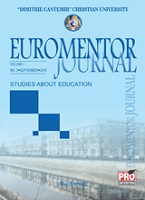A CRITIQUE OF SUSAN HAACK’S FOUNDHERENTIST THEORY OF EMPIRICAL JUSTIFICATION
A CRITIQUE OF SUSAN HAACK’S FOUNDHERENTIST THEORY OF EMPIRICAL JUSTIFICATION
Author(s): Olanshile Muideen AdeyanjuSubject(s): Epistemology, Contemporary Philosophy, Analytic Philosophy
Published by: Editura Pro Universitaria
Keywords: coherentism; foundationalism; foundherentism; epistemic regress; circularity; epistemic justification;
Summary/Abstract: In traditional epistemological discourse, the tripartite theory of knowledge is the conception of knowledge as justified true belief. Each condition of knowledge – belief, truth and justification – has evoked critical discussions among philosopher. However, for its nature of epistemic normativity, justification has evoked more critical reviews and there has been the development of different theories in its regard. Among traditional theories of justification are foundationalism and coherentism. Susan Haack argues that these two are inadequate theories of justification due to some flaws – foundationalism is susceptible to the problem of infinite regress while coherentism is susceptible to circularity problem. She proposes foundherentism, an intermediate theory of justification between foundationalism and coherentism, which she argues addresses the flaws of the traditional theories through an epistemic combination of the relevance of experience for the justification of empirical beliefs as well as pervasive mutual dependence among beliefs. In this paper, I argue that Haack’s foundherentism fails as an adequate theory of justification. The position of this paper is that foundherentism does not pointedly address the problems of regress and circularity, hence it fails on the same ground as foundationalism and coherentism.
Journal: Euromentor Journal - Studies about education
- Issue Year: XII/2021
- Issue No: 1
- Page Range: 57-70
- Page Count: 14
- Language: English

